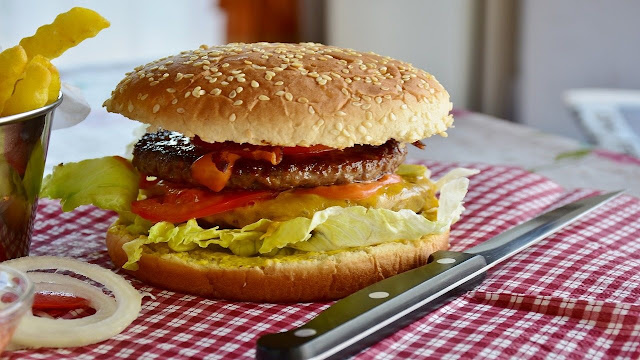How Calorie Consumption Plays Role in Weight Management? Facts you never knew before!
The relationship between calorie intake and weight control
has always been controversial. Within the general public of the USA UU., The
number of people who have tried calorie counting as a means to lose weight, and
has failed, is undoubtedly a very high number. In a way, it's similar to trying
to lower your cholesterol levels: eating less foods that contain cholesterol
does not guarantee that your blood cholesterol levels will decrease.
 |
| How Calorie Consumption Plays Role in Weight Management? Facts you never knew before! |
What is a Calorie?
In simpler terms, a calorie is not any kind of "thing" at all. Calories are not like proteins, carbohydrates, vitamins or any type of nutrient. You can find proteins in food. You can find vitamins in food. However, you cannot find a calorie in any food. Calories do not exist that way.
 |
| What is a Calorie? |
Calories are units of measurement. They are like inches, miles, ounces, degrees of temperature, pounds, tons, gallons and acres. They are just a way of understanding how much of something is present. In the case of calories, this something is energy. The amount of energy associated with any set of events can be measured in terms of calories. Calories do not have to involve food. For example, there is a specific number of calories that any electric cable can carry without igniting. There is a specific number of calories that hit the earth each day in the form of sunlight. Calories are not found in food. They only relate to food to the extent that food has the potential to be measured as a form of energy.
Can calories be accurately measured in foods?
Hundreds of Internet websites publish lists of foods and calories. The US Department of Agriculture Publish an online database (http://www.nal.usda.gov/fnic/foodcomp/search/) with caloric information on thousands of foods.
 |
| Can calories be accurately measured in foods? |
Is the information provided by the USDA and other websites correct?
Unfortunately, the answer is yes and no. Yes, there are solid scientific studies that use real foods and real laboratory conditions to support specific numbers of calories that appear in the USDA database and other published food and calorie lists. This research can be of very high quality, sophisticated and scientifically sound. But it is a research based on laboratory analysis, not an investigation based on the passage of real foods through a person's digestive tract. Unless the food is digested, it cannot provide us with calories (energy).
When the calories from food are measured in a laboratory, a device called a pump calorie meter is used. This device measures energy in the form of heat.
Within this device, a highly oxygenated sealed chamber containing a food sample is floated in water. An electric current is used to ignite the oxygen and food mixture and, as it burns, the water surrounding the floating chamber is heated. The amount of calories in food is determined by the change in water temperature. A high-calorie food heats the water by releasing more thermal energy than a low-calorie one.
The human body, of course, is not as simple as a laboratory device. We do not digest the food by setting it on fire. We digest chemically, and our biochemistry is highly individual, in fact, unique. The calories of energy that we obtain (or do not obtain) from food can vary significantly, and some people combine better with one type of food than with another. Although calories can be measured accurately in a laboratory where they appear to be a fixed attribute of food, once we enter a living person and a unique biochemical digestive tract, all bets are reduced when it comes to from a rigid set of calorie predictions.
How is weight related to energy?
Our body weight consists of three main components: water, muscle mass and fat mass. With respect to the weight of water, we are generally close to 60% of the total weight. A person weighing 150 pounds would be expected to contain about 60% of those pounds, or 90 pounds, in the form of water.
Living, moving, staying warm, and all other body functions require energy. At least part of this energy must come to us daily in the form of food. Other portions of this energy can come from the burning of fat in our fat cells. If our bodies need more energy than we provide through food, our bodies get the necessary energy from stored fat. (In certain situations, including emergencies, our bodies also use starches stored in our muscles and liver and proteins that are found in the muscles themselves).
When any component of our total body weight decreases (water, muscle or fat), while the other components remain stable, we lose weight. When one component rises to the same extent as another decreases, we still have the same weight. Over time, if our bodies require more energy than we provide through food, we always lose weight. This "always" cannot be measured in terms of hours, or even a few days. But over time, it is not possible for us to maintain the same weight if we maintain the same weight percentage of water and spend more energy than our digested foods provide.
Proteins, carbohydrates, fats and calories.
The rules of nutrition based on the laboratory have always been simple: it has traditionally been said that proteins and carbohydrates contain 4 calories per gram. It has been said that fats contain 9 calories per gram.
This calorie-based description of the three primary macro-nutrients has been used as the basis for dozens of weight loss programs, especially programs that promote low-fat and high-calorie intakes.
These programs are based on solid science, but, once again, science is laboratory science, not human science of the digestive tract.
The reasoning behind these low-fat and calorie-based approaches to losing weight has been simple. Why risk consuming one type of macro-nutrient (fat) when that type of nutrient contains more than twice as many calories (9 per gram) as the other two basic types (protein and carbohydrates at 4 per gram)? While this reasoning seems solid in mathematical terms, the successful weight loss experience of many people on high-fat, low-carbohydrate diets seems to contradict it. But there is not really a contradiction here at all. Individuals are not identical in their digestion. They are paired differently to different foods. Some people clearly do better with high-fat and low-carbohydrate diets, even if those diets contain the same amount of calories as high-carb, low-fat diets! It is important to determine the best dietary balance to control your weight, especially the best balance of proteins, carbohydrates and fats. It is also a task that is separate from the task of counting calories.
Do calories matter?
If the human digestion of food is so individualized and different from laboratory analysis, does laboratory analysis of calories from food really matter? They Yes! No matter how well you agree with your diet plan for weight control, you simply cannot lose weight if you do not pay attention to your calorie intake. You cannot lose weight if your body digests food and releases exactly the same amount of energy from the food needed to maintain your muscle mass, fat mass and water weight. In this sense, calories definitely matter. It's worth paying attention to calories. But counting calories is not the whole story, and it does not replace the nutrients that promote the health you need to burn fat. The key is that you need more nutrients and fewer calories.




1 Comments
Exipure is unlike anything you ve ever tried or experienced in your life before! It is the only product in the world with a proprietary blend of 8 exotic nutrients and plants designed to target low brown adipose tissues (BAT) levels, the new found root cause of your unexplained weight gain. For every tiny increase in BAT means a huge jump in calorie, fat burning, & energy levels. ==>Click Here to Watch This Video
ReplyDelete